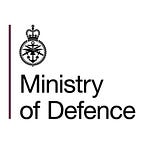‘I don’t think there’s a word in my vocabulary that could describe how rewarding it is’
Sergeant Stone of the Royal Army Medical Corps [RAMC] shares the insights he has gained from training over 50 Ukrainian Medics and his personal experiences of serving in the UK Armed Forces.
Can you tell us a little bit about you? How long have you been in the Armed Forces and were you always a medic?
I’m Sergeant Stone and I’ve been in the Armed Forces for 15 years. I was a young lad who had just left school and decided to join the infantry. It was a great experience. When I joined at the time you had Iraq and Afghanistan going on simultaneously, so it was constantly busy.
What made you switch from the Infantry to combat medic?
There are a number of reasons why I wanted to switch over. One because I had shown that I had a real flare for medicine. I wanted to pursue that further. I wanted to pursue more opportunities and I felt for my career pathway it was better in the RAMC.
I was really interested in medicine and to be honest with you, going out on tour I wanted to be useful to my mates. Because it was quite kinetic and there’s IEDs and all sort of things, I wanted to be the one that people could rely on.
So, you find yourself on this operation to train Ukrainian Medics, how do you find this compares to other operations that you’ve done?
It’s very different, I don’t feel like I’m on operation because I’m in the UK.
I’ve never trained people that are so dedicated. For them it isn’t just some place that they’re going; it’s home. And they want to defend it, so they really want to absorb the knowledge that you have. You get a real respect for them and they’re really motivated individuals.
How important do you think this operation is?
I can’t emphasise how important this operation is, I didn’t realise until I actually became a part of it and actually spoke to the Ukrainians. Everyone’s seen the Stacey Dooley documentary and what goes on there and I did not realise how important this is to the Ukrainians. Like some of them have been on the field gun course and AS90 course, and some of the students on this course [combat medicine training] were telling me the skills and drills that they learnt on those Interflex courses they’ve actually implemented in Ukraine.
We are giving them skills, so they can work and treat their friends… we’re giving them skills so they can do prolonged field care. They can do the initial treatment, the stabilisation treatment, and prolong the casualty’s life until evac. far from We’ve got guys here who arre absolutely going to be using their new medical skills in Ukraine.
[The war] is likely to incur casualties on the offensive that’s why they need the medics on mass so it’s really important we support this operation. If you’ve got a good medic behind you then infantry soldiers are likely to be less fearful.
How much does that sense of responsibility, on you as a medic, affect your response when you hear someone has been wounded in combat and needs a medic?
It’s hard to explain without being there but you assess what’s the likelihood of me getting there [to the casualty], it’s that risk versus reward, isn’t it? And if the risk was what I deem to be as minuscules, the rewards is potentially a gamble but worth the gamble. Everyone has a choice to make, but you assess the dangers on the ground.
For these guys [the Ukrainians] it’s their home and it’s a lot more real for them, because not only is it their friends and essentially family but it’s also their homeland as well. I think their choices are a lot easier, because they’ll give everything for their country.
How useful is your past experience of being both an infantry soldier and combat medic in a conflict areas for training the Ukrainian medics?
You kind of get it, especially as we’ve got a mixed bunch of who’s got experience and who hasn’t; who’s not been on the front. So, you can kind of put yourself in their position especially with the inexperienced guys, like the first time they come into contact, what they’re thinking. You can tell someone until you’re blue in the face that you need to do this, this, and this but until you’ve actually experienced it no one knows how you’re going to react.
They always say you’re not a medic until you treat a casualty, you’re not infantry until you’ve been in the fight, because you don’t know how you’re going to react.
How rewarding have you found being involved with the training of Ukrainian Medics?
I don’t think there’s a word in my vocabulary that could describe how rewarding it is. It’s one of the most rewarding things I’ve done, because I know that they’re going to go forward and implement this and save their friends; like we all aspire to do as medics. We always aspire to try to save as many people as we can and they’re going to go out and actually implement the skills taught.
